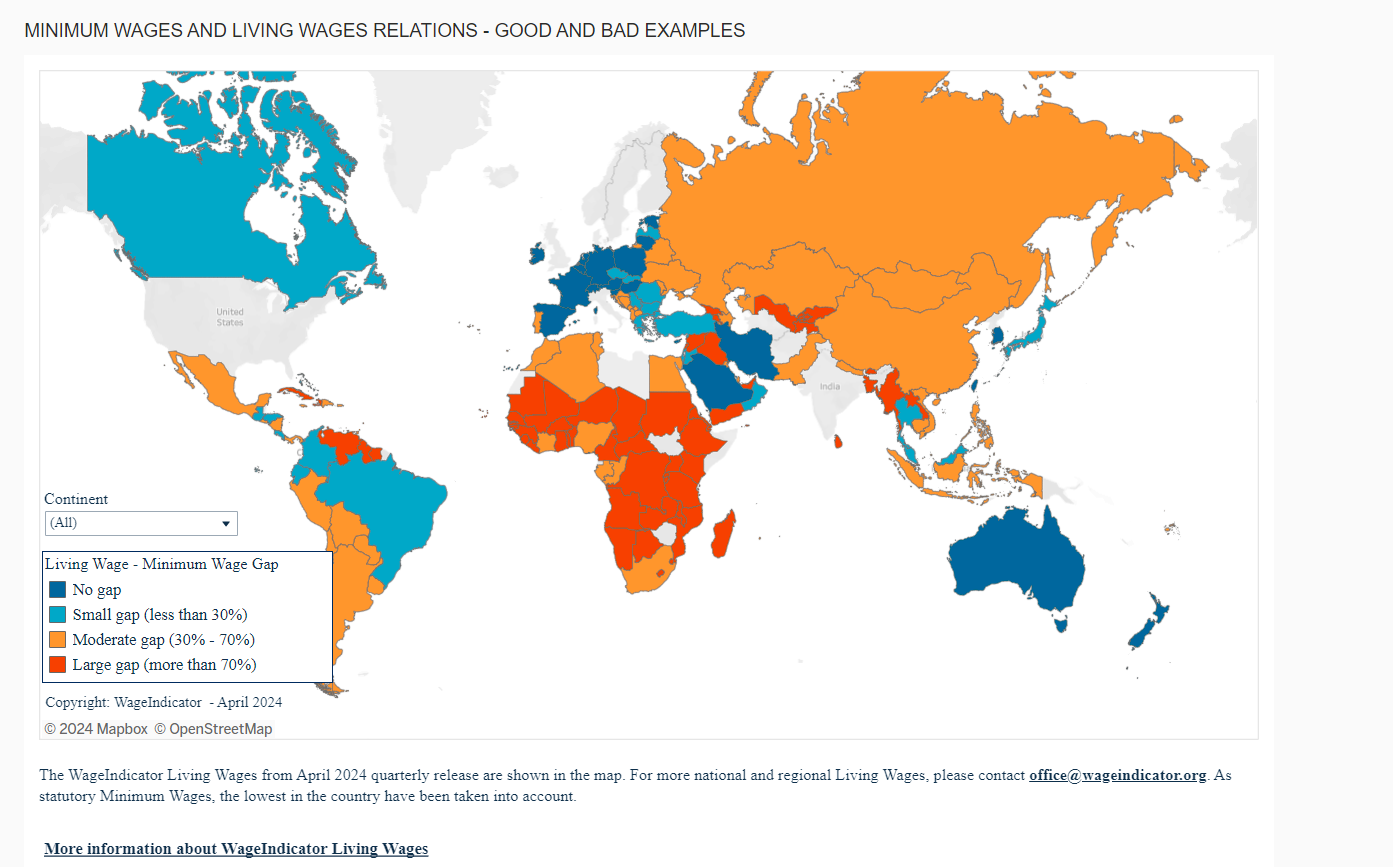Publications
Press release: A significant part of the employees receives a salary that is not enough for a decent living
Press release: A significant part of the employees receives a salary that is not enough for a decent living
Published on July 1, 2024

The Central European Labour Studies Institute (CELSI) in cooperation with the WageIndicator Foundation (WageIndicator) found out that the minimum wage in Slovakia still does not allow many employees to cover even the basic expenses for a dignified life.
The decent living wage for a typical household with two adult earners was calculated by experts from WageIndicator for the first quarter of 2024 in Slovakia at 962 euros per employee.
However, the legal minimum wage was set at 750 euros this year, still the fifth lowest in the European Union after Hungary, Latvia, Romania and Bulgaria.
The current minimum wage can therefore only cover 78 % of the worker's basic expenses needed for a dignified life.
The difference between a decent wage and the legally guaranteed minimum wage thus reached 22%, which ranks Slovakia among the countries with the largest gap between a decent wage and the legal minimum wage in the European Union.
Among the measured countries in the EU, only Latvia (39.5 %), Croatia (33.2 %), Portugal (32.1 %), Greece (23.7 %), ranked worse, and Czechia fared slightly worse than Slovakia (23.3 %).
Conversely, in rich countries the minimum wage usually reaches a higher level than the calculated living wage, for example in Germany it is up to 162 %. This means that a German working for a minimum wage of 2,043 euros per month will still have roughly a third of his salary left, i.e. 700 euros, after basic expenses have been covered.
The European Parliament, which in September 2022 adopted new legislation on adequate minimum wages in the EU, also devoted itself to bringing the minimum wage closer to the costs of a decent life. Part of the transposition of the European directive in Slovakia is the amendment to the law on the minimum wage, which is being prepared by the Ministry of Labour, Social Affairs and Family of the Slovak Republic.
According to the law in force today, the amount of the monthly minimum wage for the following year is set as 57 % of the average monthly nominal wage of an employee in the economy two years ago. According to the new system, this percentage should increase to 60%.
The minimum wage should thus reach 816 euros next year, 920 euros in 2026 and up to 969 euros in 2027. According to KOZ estimates, the change would affect roughly 200,000 people. Even the new calculation will not bring the minimum wage to the level of a decent wage.
Data from more than 165 countries covered by WageIndicator data can be found on this link directly in the map.
What is the Living Wage and why is it important?
A living wage is a work reward for standard working hours, which provides enough funds to cover the basic material needs for a dignified life, such as housing, food, health care, transport, children's education, clothing, water, telephone and internet, but also taxes, levies and other unforeseen expenses.
Publication of living wage estimates supports informed decision-making by workers, employers, social partners, researchers and governments. It thus removes obstacles to wage negotiations and collective bargaining and thereby contributes to fairer working conditions for all.
WageIndicator Foundation and CELSI
Living Wage estimates are published annually by WageIndicator Foundation for more than 165 countries. They were developed and continue to be updated thanks to the joint efforts of universities and research institutes from all over the world, including the Central European Labour Studies Institute (CELSI) in Slovakia, as well as thanks to hundreds of collaborators who participated in data collection.
CELSI is a non-profit research institute based in Bratislava. It deals with multidisciplinary research on the labour market and its institutions, work and organizations, entrepreneurship in society and ethnicity and migration within the economic, social and political life of modern society.
- If you are a representative of the media and want to know more, contact us at dominik.hutko@celsi.sk and monika.martiskova@celsi.sk
- If you want to know more about our methodology, you can read our report Living wages around the world or see our FAQ.